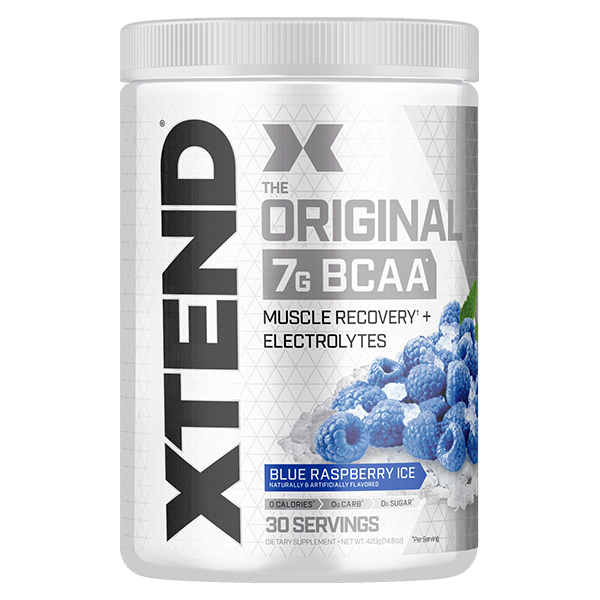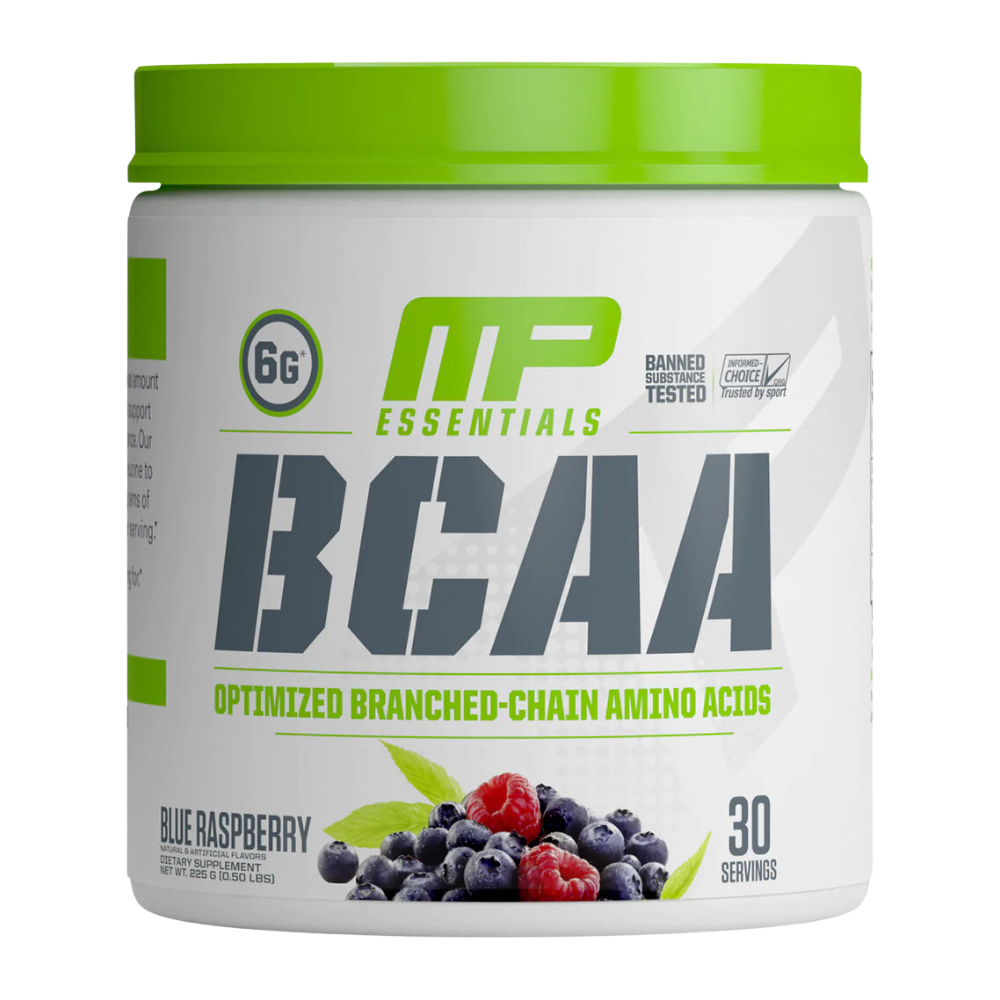BCAAs have become a hot topic in fitness circles, but what do these powerful amino acids actually do for your muscles? Your body might need these three essential amino acids—leucine, isoleucine, and valine—especially during those tough final reps. Studies show people who took 5.6 grammes of BCAAs after resistance training saw their muscle protein synthesis increase by 22% more than those who took a placebo.
These branched-chain amino acids make up about 35% of essential amino acids in muscle proteins. This makes them crucial if you want to build or maintain muscle mass. Your body can benefit even more as BCAA supplements can reduce delayed onset muscle soreness by up to 33%. They also decrease exercise-induced fatigue by changing your brain’s serotonin levels. Many fitness enthusiasts still don’t understand what BCAAs do, and they question if the benefits outweigh the potential risks. In this piece, you’ll find the science-backed BCAA benefits and risks that will help you decide if these supplements belong in your fitness routine.
What’s behind BCAAs and muscle metabolism
Branched-chain amino acids stand out from other amino acids because your body processes them differently. The molecular workings of BCAAs explain why fitness enthusiasts value them so much.
How BCAAs fuel muscle activity
BCAAs work differently than other amino acids. They skip liver processing and go straight to your bloodstream, which makes them ready for your skeletal muscles to use. This unique process explains why BCAAs account for approximately 35% of muscle proteins’ essential amino acids.
Your muscles depend on three amino acids—leucine, isoleucine, and valine—as vital metabolic building blocks when you rest or exercise. These amino acids transform through enzyme reactions into compounds that enter the tricarboxylic acid (TCA) cycle. The cycle then produces adenosine triphosphate (ATP) that powers your body’s functions.
Their role in protein synthesis and breakdown
We noticed BCAA benefits for muscle development come from their effect on protein metabolism. BCAAs boost muscle protein creation and reduce protein breakdown, which creates ideal conditions for muscle growth.
Leucine stands out because it activates the mammalian target of rapamycin (mTOR) signalling pathway—which regulates muscle growth. This happens through several ways, including disruption of the Sestrin1/2-GATOR2 complex. The activated mTOR then phosphorylates downstream targets that spark protein synthesis, which might lead to bigger muscles.
Notwithstanding that, research shows BCAAs alone can’t create the best anabolic state. Your body needs all nine essential amino acids to maximise muscle protein synthesis.
BCAAs and energy production during exercise
Exercise increases BCAA oxidation 2-3 times, while carbohydrate and fat oxidation jumps 10-20 times. BCAAs help with energy production but aren’t your body’s main fuel during physical activity.
Recent studies reveal that BCAA supplements boost fat burning during endurance workouts and improve carbohydrate use during intense exercise. BCAA supplements also lower blood ammonia levels after exercise compared to placebo groups.
Exercise activates the branched-chain α-keto acid dehydrogenase (BCKDH) complex—the key enzyme in BCAA metabolism—through phosphorylation-dephosphorylation cycles. This increased BCAA activity during exercise suggests you need more BCAAs when physically active.
BCAA supplement benefits: What studies actually show
Research findings about BCAA supplements paint a different picture than what marketing claims suggest. Clinical studies show how these supplements actually work for fitness goals.
Muscle growth and lean mass
The science behind BCAAs for muscle building shows mixed results. A study revealed that people who took BCAAs during an 8-week caloric-restricted diet kept their lean mass while losing fat mass. The carbohydrate group lost lean mass and body mass. With resistance training showed that BCAA supplements helped participants lift heavier weights in both squat and bench press exercises.
People who took 20 grammes of BCAA daily for 4 days after intense exercise built more muscle mass. However, some research suggests that BCAAs need all essential amino acids to fully stimulate muscle protein synthesis.
Fatigue reduction and endurance
BCAAs can help you exercise longer by delaying when you get tired. Research shows that BCAA supplementation improved time to exhaustion when participants took 20 grammes before workouts. People who took BCAAs during exercise felt 15% less tired than those who took placebos.
The BCAA group exercised 17% longer before they got exhausted. This happens because BCAAs compete with tryptophan, which could lower serotonin levels that make you feel tired during exercise.
Muscle recovery and soreness
The best evidence for BCAA benefits comes from recovery studies. A meta-analysis of 25 studies found that people who took BCAAs had less muscle damage 48 hours after exercise. Their muscle soreness dropped at 24 hours (SMD = -0.28 to -0.61) and 48 hours (SMD = -0.41 to -0.92) after exercise.
Taking BCAAs before or after strength training reduced muscle soreness by 33% compared to placebo groups. A review that looked at different BCAA supplement amounts found that doses up to 255 mg/kg/day helped reduce DOMS symptoms, especially in trained athletes.
BCAAs help reduce soreness and some signs of muscle damage. However, some studies question whether they help restore muscle performance after exercise.
Beyond fitness: BCAAs in medical and clinical use
BCAA supplements attract fitness enthusiasts who want muscle gains, but medical researchers have discovered these amino acids can help with serious medical conditions. The results look promising as their therapeutic value reaches way beyond the reach and influence of fitness centres into clinical settings.
BCAAs in liver disease and hepatic encephalopathy
BCAA supplementation has become a standard treatment for advanced liver disease. The American Association for the Study of Liver Diseases and European Association for the Study of the Liver both recommend BCAA supplements for cirrhotic patients. A systematic review revealed oral BCAA supplementation works better than placebo or no intervention to treat overt hepatic encephalopathy.
Patients with cirrhosis who took BCAA supplements saw improvements in their Child-Pugh scores, MELD scores, and survival rates without complications. Long-term use of these supplements helped improve liver function in patients with advanced liver cirrhosis. BCAAs compete with aromatic amino acids to cross the blood-brain barrier, which might reduce neurotoxic effects.
Cognitive recovery after brain injury
BCAA benefits help patients recover from traumatic brain injury (TBI). A clinical trial showed patients taking BCAA supplements scored better on the Disability Rating Scale than those taking placebo (P<.004). Another study showed BCAAs helped boost cognitive recovery in patients with severe TBI without affecting tyrosine and tryptophan levels.
A newer study, published by Children’s Hospital of Philadelphia found early evidence that young people with concussions who keep taking BCAA supplements got better faster and returned to physical activity sooner. The total symptom score dropped 4 points on a 0-54 scale for every 500g of treatment consumed.
Potential effects on blood sugar and metabolism
BCAA metabolism links closely with insulin sensitivity and glucose regulation. This relationship gets complicated—higher BCAA levels associate with insulin resistance, obesity, and type 2 diabetes.
A cross-sectional population study revealed something interesting—just a small rise in dietary isoleucine intake compared to total protein (from 4% to 5%) linked to a 2.46 unit increase in BMI (p=0.046). However, studies suggest lower dietary isoleucine might improve metabolic health and reduce diabetes risk by increasing energy expenditure.
BCAA supplements clearly help treat certain medical conditions. Their effects on metabolism need careful study. Medical professionals should learn about both benefits and risks in different clinical situations.
Risks, side effects, and when to avoid BCAAs
BCAAs offer many benefits, but these powerful amino acids come with risks. Your safety depends on knowing when to be careful or avoid them completely.
Common side effects of BCAA supplements
Most people handle BCAAs well, but some users experience uncomfortable reactions. The most common side effects affect the digestive system. These include nausea, bloating, and diarrhoea. Some users report decreased appetite and stomach discomfort.
BCAAs can affect your coordination, so you should be careful before activities like driving. Your kidneys might strain from high doses over time, especially if you have existing health conditions.
Who should avoid BCAAs
These groups face higher risks from BCAA supplements:
- Pregnant or breastfeeding individuals should stay away from BCAA supplements because safety data doesn’t exist
- People with maple syrup urine disease can’t process BCAAs correctly, which could lead to severe brain damage
- ALS (Lou Gehrig’s disease) patients should avoid these supplements due to their link with lung failure and higher death rates
- People with diabetes need to be careful since BCAAs might increase insulin resistance
Studies show too much BCAA intake could lower your brain’s serotonin levels and affect your mood.
Interactions with medications
BCAAs don’t mix well with certain medicines. They can reduce how much levodopa (a Parkinson’s disease medication) reaches your intestines or brain.
Your blood sugar levels might change when you take BCAAs with diabetes medications, which could cause dangerous glucose drops. Steroids also change insulin resistance, so taking them with BCAAs might cause more blood sugar problems.
Lack of regulation in supplement industry
The supplement industry lacks proper oversight. The FDA doesn’t monitor dietary supplements as closely as medications. This creates concerns about quality and safety.
Some sports supplements have been linked to serious health problems, including deaths and liver transplants. To stay safe, choose brands that use third-party testing to check their product quality and strength.
Conclusion
The science behind BCAA benefits tells an interesting story. Without doubt, these three essential amino acids are vital for muscle metabolism. Leucine stands out because it activates the mTOR pathway that drives muscle growth. But research shows BCAAs work better when you combine them with other essential amino acids instead of using them alone.
BCAAs shine brightest when it comes to reducing muscle soreness and speeding up recovery. Research reveals they can cut delayed onset muscle soreness by up to 33%. This makes them valuable if you train intensely. They also help you exercise longer before getting tired, which is great news if you want to improve your performance.
BCAAs have proven their worth beyond just the gym setting. Medical professionals use them to treat liver disease, traumatic brain injury, and other conditions. In spite of that, you need to consider the potential risks. This is crucial if you’re pregnant, have conditions like maple syrup urine disease, or take medications that might interact with BCAAs.
You should talk to a healthcare professional before starting BCAA supplements, especially if you have health concerns. The supplement industry isn’t strictly regulated, so choose your brands carefully. Look for products that have gone through third-party testing to ensure quality.
Your specific fitness goals, health status, and diet determine how useful BCAAs will be for you. While they’re not miracle supplements for building muscle, BCAAs can be effective tools in a detailed nutrition and training programme. Just make sure to use them properly and keep your expectations realistic.





